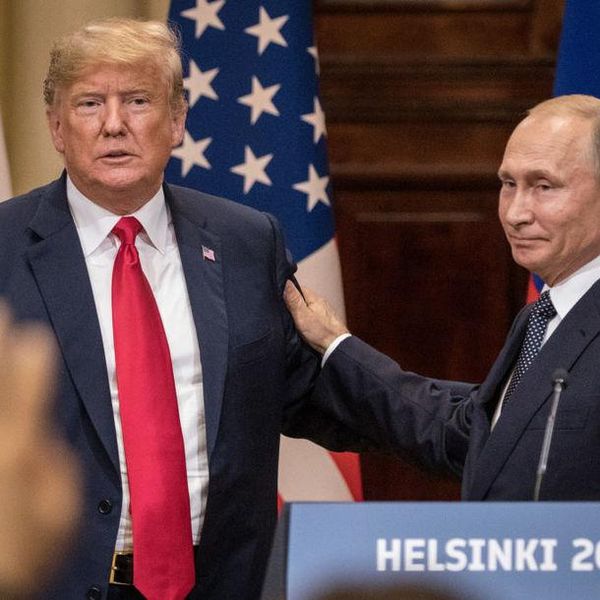Islamist Fighters Capture Saddam Hussein’s Hometown, Move On Key Oil Refinery

By Mitchell Prothero, McClatchy Foreign Staff
ISTANBUL — Militants from the Islamic State of Iraq and Syria on Wednesday pushed their offensive south into Iraq’s Sunni Muslim heartland, capturing key crossroad towns on the highway to the capital, Baghdad, and threatening a critical oil refinery.
As hundreds of thousands of Iraqis fled their homes for the safety of nearby Kurdish-controlled areas, the fighters of the Islamic State — clearly much more of an entity than the label “terrorist group” implies — occupied much of the strategic city of Tikrit, were battling for control of a key oil refinery in the town of Baiji, and were pushing into the mixed Kurdish-Arab city of Kirkuk.
Social media accounts associated with the Islamic State also triumphantly announced the end of the Sykes-Picot Agreement, the demarcation of modern Middle East borders by France and Great Britain after the defeat of the Ottoman Empire in World War I. The group released credible but unconfirmed footage of heavy equipment adorned with the black flag of the Islamic State destroying fences and earthen berms along the Syrian border.
In Tikrit, the hometown of Saddam Hussein, who Iraq’s current government executed in 2006, the Islamic State was receiving heavy support from local anti-government tribes under an insurgent coalition called the General Military Council. Witnesses inside Tikrit said the rebels had taken control of much of the city, which was being adorned with posters of Saddam.
Dr. Issa Ayal, a local journalism professor, said the scene in Tikrit, the capital of Salahuddin province, was a near repeat of ISIS’ capture late Monday of Mosul, Iraq’s second largest city, when government soldiers and police shed their uniforms and their weapons and fled their posts ahead of the ISIS attackers.
“They had civilian clothes and left their posts,” he said of Iraqi soldiers in Tikrit.
The governor’s office in Tikrit fell about 11 a.m., he said. “Many members of Tikrit’s tribes loyal to the late President Saddam joined the fighters and I can see and hear them chanting Tikriti songs and chants near the governor’s office,” he said.
He said that ISIS gunmen had halted the broadcast of a Salahuddin satellite TV channel but did not harm journalists at the station and allowed them to leave safely.
In Baiji, which also lies in Salahuddin province, Islamic State fighters were pressing to add one of Iraq’s most important oil refineries and pumping facilities to the substantial list of economic infrastructure captured in the past 48 hours. In what would be a rare bright spot in the abject humiliation of the Iraqi army in recent days, Iraqi government media reported that the army garrison at the refinery had repelled the initial attack. But fighting was continuing for control of the facility, whose capture would be a huge boon to the rebels and a major blow to the government.
Embattled Iraqi Prime Minister Nouri al-Maliki took to state airwaves to offer weapons to any civilians willing to fight against the quickly encroaching Islamic State, a call to arms that was aimed primarily at the Shiite Muslim militias that successfully battled Sunni groups for control of Baghdad in a sectarian war from 2006 to 2008. But how many would respond was not clear, and a key former militia leader, cleric Muqtada al-Sadr, suggested he would limit his response to protecting the Imam Ali Shrine in the holy city of Najaf, which is about 100 miles south of Baghdad and 200 miles south of the scene of Wednesday’s fighting.
Meanwhile, a number of Sunni Muslim tribes in the provinces of Anbar, Nineveh and Salahuddin appeared to be joining the Islamist advance after years of tensions with the Shiite government in Baghdad.
Islamic State fighters appeared to be avoiding confronting the peshmerga militia loyal to the autonomous Kurdistan Regional Government, which had dispatched troops from the Kurdish capital of Irbil to impose a security cordon around Kurdish areas and to reinforce peshmerga troops in the Kurdish eastern half of Mosul and further south in the Kurdish sections of the mixed city of Kirkuk. But Islamic State fighters and local Sunni tribesmen were battling for control of Arab districts.
“We’ve fully mobilized, obviously,” said Sabaa al-Barzani, a Kurdistan Regional Government security official in Irbil. “We’re sending peshmerga fighters to Mosul and Kirkuk and using them to form a protective circle around Irbil.”
Al-Barzani said the stream of refugees that began fleeing Mosul for Irbil had become a torrent on Wednesday.
“We’re counting 20 cars a minute right now, and they’ve been coming all day,” he said.
The International Rescue Committee estimated that at least 500,000 people had fled fighting in Mosul by Wednesday afternoon, leaving a humanitarian crisis in the making as Iraq is already struggling to house 200,000 refugees from the fighting in neighboring Syria.
Reports that the peshmerga were attempting to recapture Mosul’s international airport, which fell Tuesday to the Islamic State, could not be confirmed. But the site represents a major strategic asset that would allow the Iraqi army to send troops and establish supply lines for any attempt to retake the city.
Al-Barzani would not comment on specifics but said that “security operations on several fronts are planned or ongoing.” A security official, who spoke on condition of anonymity because of the sensitivity of the issue, did confirm that Kurdish units had retaken the Rabia border crossing with Syria earlier in the day.
ISIS stormed the Turkish consulate in Mosul at midday Wednesday and captured the consul-general, Ozturk Yilmas, a career diplomat, and 48 other staff members, the Turkish Foreign Ministry said in Ankara. On Tuesday it arrested 31 Turkish truck drivers as they were delivering diesel fuel to a depot in Mosul.
With 80 people being held, Turkey called for an emergency meeting of the NATO council. But it wasn’t clear what the government in Ankara would undertake as a response, or what support it would seek from its NATO allies. Reports in the Turkish media said ISIS had demanded a $5 million ransom for the release of the drivers. The fate of the diplomats was also unclear. A Twitter account thought to be linked to ISIS stated that the “Turks are not kidnapped. They are only taken to a safe location and until the investigation procedures are completed.”
It was still unclear just how much U.S.-provided military equipment had been captured in the seizure of Mosul, but the booty no doubt totaled tons of heavy weapons. The Islamic State’s treasury also was no doubt swollen by the hundreds of millions of dollars the group’s fighters seized from government offices and banks in Mosul.
AFP Photo








